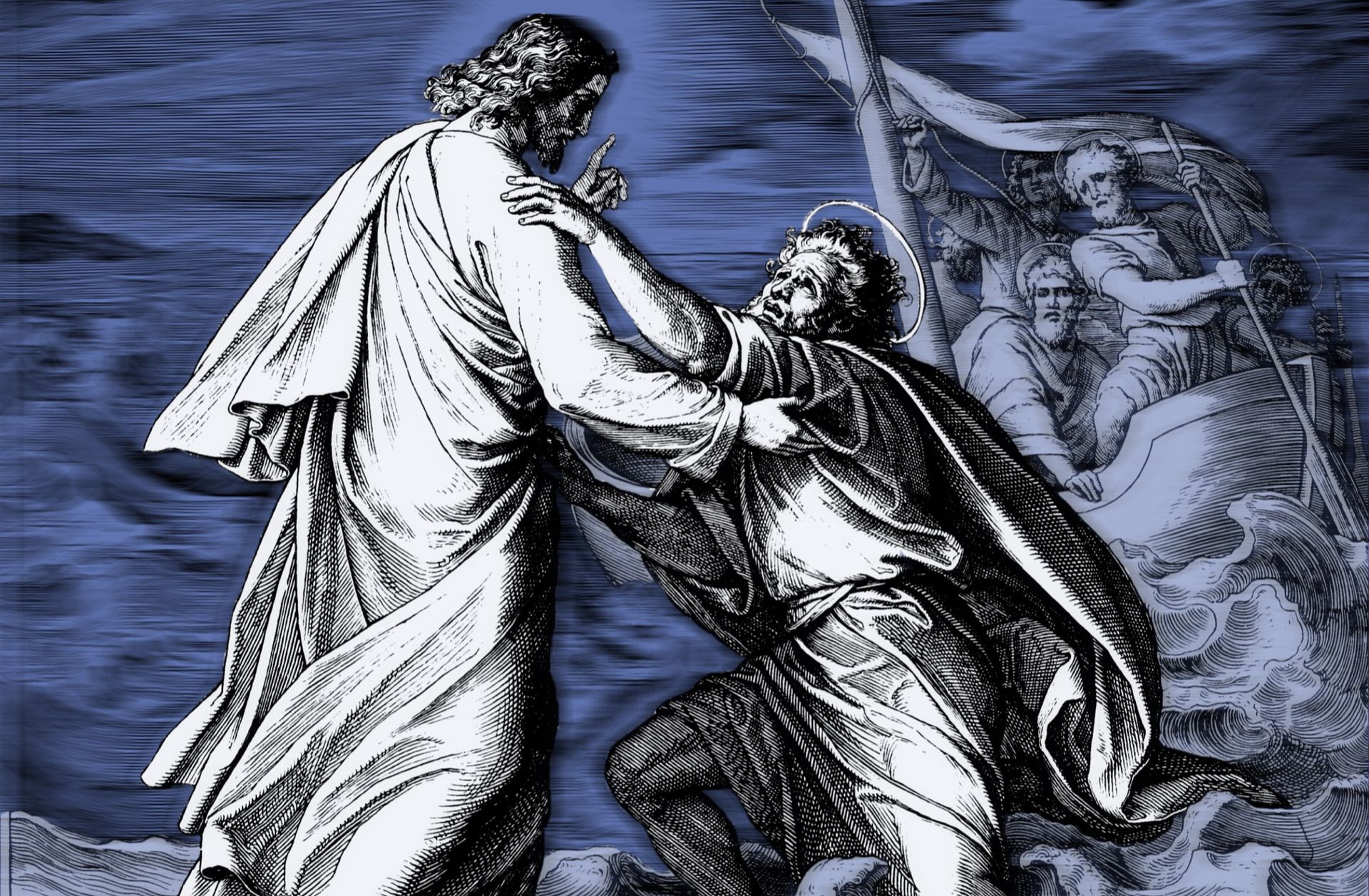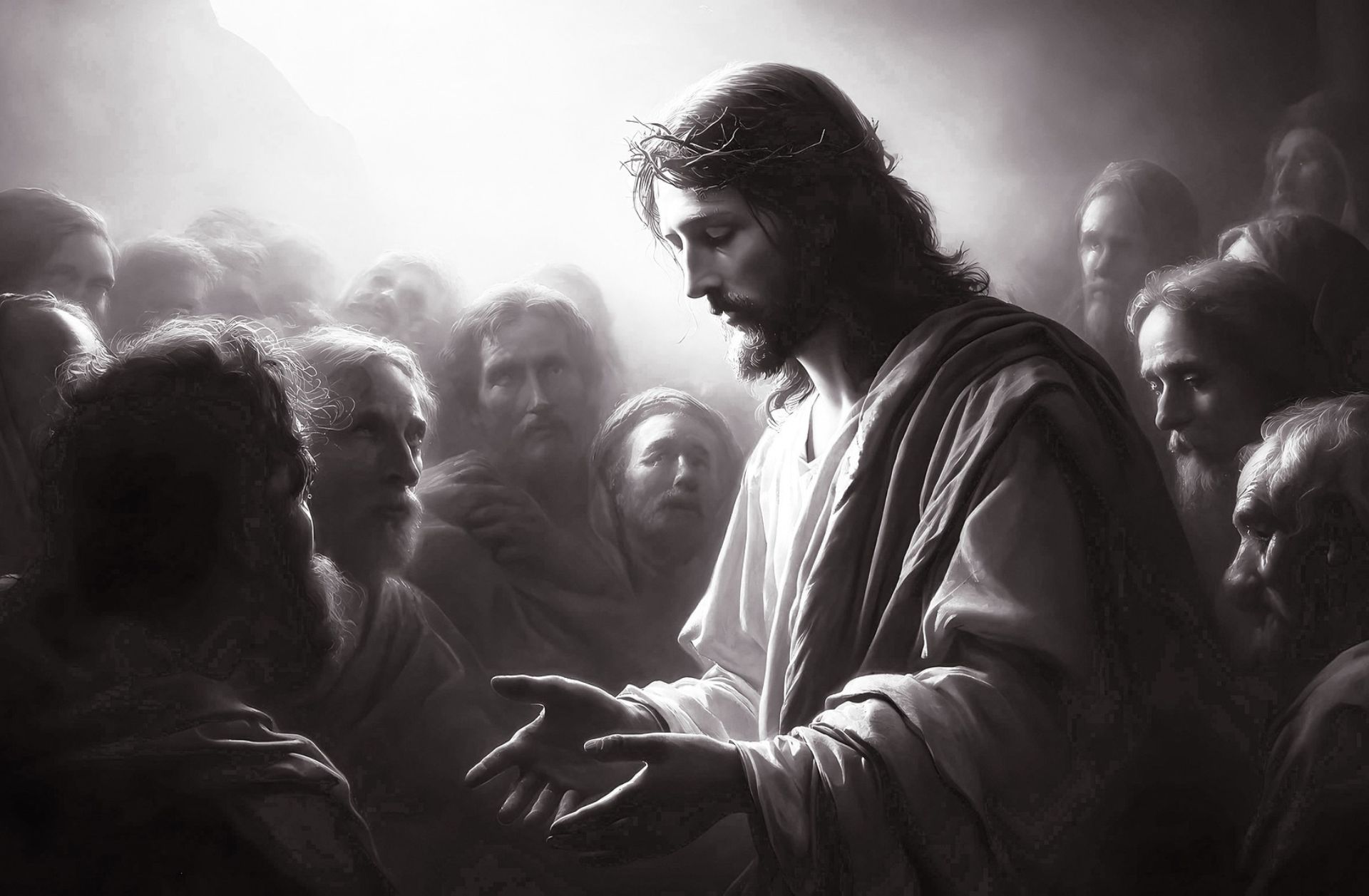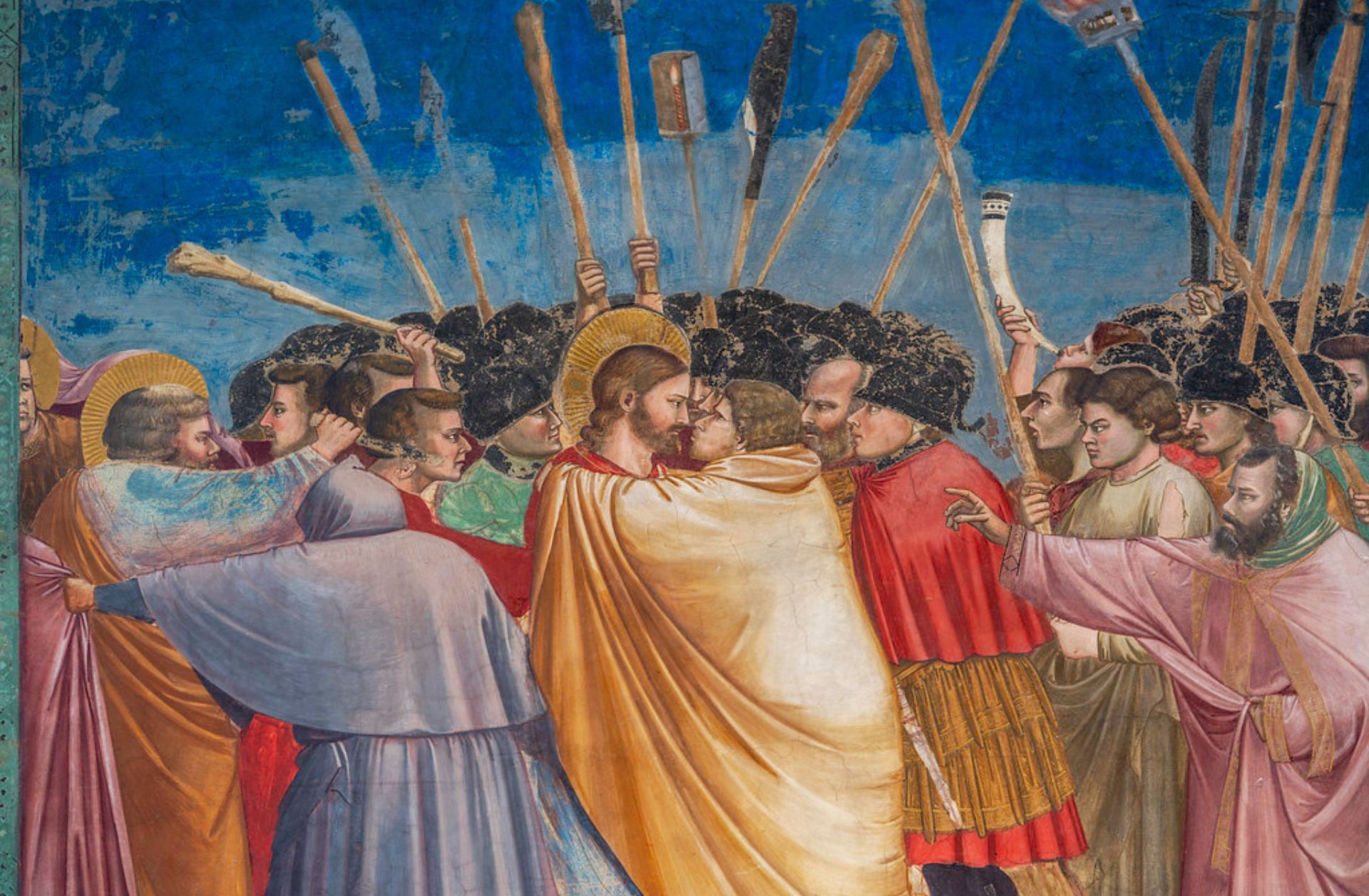Gospel of John Chapters 13-18 Overview

John Chapters 13-18. Jesus’ New Commandment, the Promise of the Holy Spirit, the 3 Main Roles of The Holy Spirit, The High Priestly Prayer, the Passion of Christ
Gospel of John Chapters 13-18 Overview. Jesus prepares His disciples for His departure, offering teachings and prayer during the Last Supper and foretelling events to come. Chapter 13 begins with Jesus washing the disciples’ feet, teaching humility, and giving a “new commandment” to love one another. He predicts Judas’ betrayal and Peter’s denial. In Chapters 14–16, Jesus comforts His disciples with promises of the Holy Spirit, assurances of eternal life, and the metaphor of the vine and branches, emphasizing the importance of remaining in His love.
Chapter 17 records Jesus’ profound prayer for His followers, asking for unity, protection, and sanctification. Chapter 18 describes Jesus’ betrayal and arrest, as Judas leads soldiers to seize Him. Jesus is taken before the high priests and ultimately Pilate, setting the stage for His crucifixion. These chapters depict Jesus’ love, compassion, and resolve as He faces His final hours and prepares His disciples for their mission in the world.
Gospel of John Chapters 13-18 Overview
——————–

John Chapter 13 marks the beginning of the “Farewell Discourse” in the Gospel of John, where Jesus spends his final hours with his disciples before his crucifixion. This chapter contains the powerful symbolism of Jesus washing his disciples’ feet, predictions of his betrayal and denial, and a new commandment of love. Each element reveals deeper aspects of Jesus’ mission, character, and expectations for his followers.
This chapter shows how Jesus begins preparing his disciples for his departure by embodying and teaching the principles of humility, love, and forgiveness. His example, teachings, and actions serve as a foundation for what it means to be a disciple, centered on a life of love, service, and enduring faith.
Key Themes
- Forgiveness and Restoration: Jesus’ response to Peter’s denial demonstrates his willingness to forgive and restore those who fail. This offers hope to all followers who stumble, showing that Jesus values repentance and continued faithfulness.
- Servant Leadership and Humility: By washing his disciples’ feet, Jesus sets an example of humble, servant-hearted leadership. This act encourages believers to embrace humility and to serve one another selflessly, embodying Jesus’ approach to greatness in God’s kingdom.
- Love as the Defining Mark of Discipleship: The new commandment to “love one another” redefines discipleship around the love Jesus modeled. This love is unconditional and sacrificial, a way of showing God’s love and grace to the world.
- Foreknowledge and Sovereignty of Jesus: Jesus’ awareness of both Judas’ betrayal and Peter’s denial underscores his divine knowledge and control over the unfolding events, even those that seem devastating. This sovereignty reassures believers that God’s plans prevail despite human weakness and betrayal.

John Chapter 14 is part of Jesus’ Farewell Discourse to his disciples, where he offers them comfort, guidance, and promises in anticipation of his departure. In this chapter, Jesus assures his disciples that his departure is not the end but the beginning of a new relationship with God through the Spirit, one that brings peace, guidance, and power. Jesus reassures his followers with hope, introduces the concept of the Holy Spirit, and affirms his unity with the Father.
The chapter invites believers to trust in Jesus, embrace his peace, and be empowered by the Spirit for a life of faith and hope. The overarching message is one of comfort and assurance for believers, emphasizing that Jesus’ departure is part of God’s plan and will ultimately benefit them.
Key Themes
- Jesus as the Only Way to the Father: Jesus’ claim as the way, truth, and life provides a clear, foundational teaching that he is the exclusive way to a relationship with God. This requires a personal, transformative connection with Jesus, as he is not just a teacher but the very path to eternal life.
- The Promise of an Eternal Home: Jesus’ promise of preparing a place for his followers in his Father’s house offers profound hope, assuring believers of a future with God that transcends earthly trials.
- The Gift of the Holy Spirit: The Holy Spirit’s role as Advocate, Helper, and Teacher emphasizes that believers are not left alone but have divine guidance, comfort, and empowerment to live out Jesus’ teachings.
- The Peace of Christ: The peace Jesus offers is distinct from the world’s concept of peace, which often depends on external stability. Jesus’ peace is an inner assurance rooted in God’s presence and promises, enabling believers to face life’s difficulties with courage.

John Chapter 15 is a part of Jesus’ Farewell Discourse and uses the metaphor of the vine and branches to teach about the necessity of remaining closely connected to him. This chapter emphasizes themes of unity with Christ, the role of obedience, and the power of love. It also touches on the cost of discipleship, highlighting the challenges believers will face from the world.
John 15 centers on the importance of a deep, personal connection with Jesus as the source of life and fruitfulness. It calls believers to embody love, accept the challenges of discipleship, and rely on the Holy Spirit’s guidance. The chapter invites followers of Jesus to live in close fellowship with him, finding strength, purpose, and identity in their relationship with him.
Key Themes
- The Cost of Discipleship: Jesus prepares his followers to face opposition, stressing that their loyalty to him sets them apart from the world. This forewarning helps believers understand that difficulty and rejection are expected parts of following Jesus, and that they are not alone in this experience.
- The Empowerment of the Holy Spirit: The promise of the Holy Spirit as the Advocate provides assurance that God’s presence will continue to guide and empower believers. The Spirit enables them to persevere and to be effective witnesses, strengthening them amid challenges.
- Abiding in Christ for True Life and Fruitfulness: Jesus’ teaching on the vine and branches emphasizes the necessity of an ongoing, personal relationship with him. Spiritual fruitfulness is not something believers produce on their own; it flows from a life closely connected to Jesus, nourished and supported by his presence.
- The Centrality of Love and Obedience: Jesus’ command to love is foundational to Christian life. Love is both a sign of discipleship and an act of obedience to Jesus’ teachings. Jesus’ description of his disciples as friends also highlights the relational aspect of this love—one marked by mutual trust and commitment..

John Chapter 16 continues Jesus’ Farewell Discourse, focusing on the role of the Holy Spirit, the disciples’ coming challenges, and the hope and joy they will find in Jesus’ ultimate victory. Jesus offers his followers encouragement and assurance in the face of the sorrow and opposition they will experience, emphasizing that the Spirit’s presence will guide them through the trials to come. Through the presence of the Holy Spirit, the promise of lasting joy, and the certainty of Jesus’ victory, believers are equipped to face life’s difficulties with courage, faith, and peace.
Key Themes
- Jesus’ Victory Over the World: Jesus’ statement, “I have overcome the world,” is both a comfort and a call to courage. Despite the hostility and challenges the disciples will face, they can be confident that Jesus’ victory over sin and death is complete and permanent, securing hope for all who believe in him.
- The Holy Spirit’s Role: Jesus introduces the Holy Spirit as the Comforter and Advocate, emphasizing the Spirit’s role in convicting the world of sin, righteousness, and judgment. This shows that the Holy Spirit will actively work to reveal God’s truth and guide believers, ensuring they have the support and guidance they need to carry out Jesus’ mission.
- Transformation of Sorrow into Joy: Jesus prepares his disciples for the emotional pain of his crucifixion, assuring them that this sorrow will be temporary. His resurrection will bring them unshakeable joy, a promise that also extends to all believers facing trials, knowing that God’s work brings ultimate, lasting joy.
- Access to the Father in Jesus’ Name: Jesus’ assurance that his followers will be able to ask the Father directly in his name highlights the access believers have to God because of Jesus’ sacrifice. This means they can confidently bring their needs to God, who will respond with love and provision.

John Chapter 17 often referred to as the “High Priestly Prayer,” is a prayer Jesus offers to the Father just before his betrayal and crucifixion. In this deeply intimate and profound chapter, Jesus prays for himself, his disciples, and all future believers. This prayer reveals Jesus’ heart for unity, protection, sanctification, and glorification for those who follow him. His prayer is a powerful reminder of Jesus’ ongoing care for believers and his desire for them to reflect his love and truth in the world. It is a window into Jesus’ relationship with the Father and his hopes for the Church.
Key Themes
- Protection and Presence: Jesus prays for the Father’s protection over his followers, asking that they be kept safe from the evil one while they continue their mission in the world. He also longs for his followers to be with him eternally, sharing in his glory and God’s love.
- Jesus’ Mission and Glory: Jesus’ request for glorification through his crucifixion and resurrection reflects his commitment to fulfilling God’s plan for salvation. His obedience to the Father’s will demonstrates his love for humanity and desire to reveal God’s glory.
- Eternal Life as Knowing God: Jesus defines eternal life as knowing the Father and the Son. This knowing is relational and experiential, not merely intellectual, signifying a deep, personal relationship with God.
- Unity Among Believers: One of Jesus’ central concerns is the unity of his followers. He prays for unity that reflects the unity within the Trinity—one based on love, truth, and shared purpose. This unity is meant to be a witness to the world, showing the transformative power of God’s love.
- Sanctification by Truth: Jesus prays that his disciples be sanctified by the truth of God’s word, which involves being set apart for God’s purposes and growing in holiness. This sanctification equips believers to live faithfully and missionally in the world.

John Chapter 18 records the beginning of the Passion of Christ, detailing his arrest, trial, and Peter’s denial. This chapter portrays Jesus as resolute, willingly submitting to God’s plan, and maintains his authority even when betrayed. The narrative emphasizes Jesus’ identity as the Messiah, his commitment to truth, and the unfolding of prophecy through his suffering.
John 18 highlights Jesus’ courage, authority, and obedience to God’s will in the face of betrayal, denial, and unjust accusations. The chapter contrasts human weakness and misunderstanding with Jesus’ steadfast commitment to God’s purpose, demonstrating his role as the sacrificial Lamb who willingly takes on the world’s sin. This chapter sets the stage for the events of the crucifixion and ultimately underscores Jesus’ identity as the King of a heavenly, eternal kingdom.
Key Themes
- Rejection of Truth and the Role of Pilate: Pilate’s question, “What is truth?” captures the world’s skepticism and misunderstanding of Jesus. Pilate’s inability to recognize Jesus as the embodiment of truth leads to a tragic miscarriage of justice, reflecting humanity’s broader rejection of Jesus.
- Jesus’ Authority and Willing Submission: From the moment of his arrest, Jesus is portrayed as fully in control. His “I am” statement and the soldiers’ reaction reveal his divine authority. Yet, he chooses to submit to God’s will, fulfilling prophecy and accepting the path to the cross.
- Contrast Between Jesus and His Followers: Peter’s denial stands as a poignant contrast to Jesus’ faithfulness. While Peter’s human fear leads him to deny Jesus, Jesus remains steadfast and committed to God’s will, even in the face of suffering and death.
- The Nature of Jesus’ Kingdom: Jesus clarifies to Pilate that his kingdom is “not of this world.” His mission is spiritual, focused on truth, salvation, and eternal life rather than earthly power. This distinction separates Jesus’ role as Messiah from political or revolutionary expectations, presenting a kingdom built on divine truth and love.
You must be logged in to post a comment.